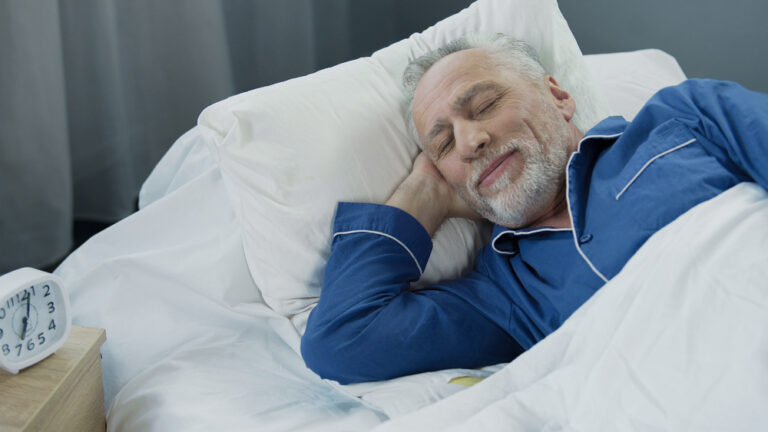The older we get, the harder it is to get a good night’s sleep. This can lead to feelings of fatigue and decreased energy during the day, making it hard to enjoy life to the fullest. However, with a few simple changes to your routine, you can enjoy better sleeps and wake up feeling refreshed and ready to face the day.
Here are eight tips to help seniors rest easy at night:
1. Establish a sleep routine.
Having a consistent sleep routine is one of the most important things you can do to improve the quality of your sleep. Try to go to bed and wake up at the same time each day, even on the weekends. This will help regulate your body’s internal clock and make it easier to fall asleep at night.
2. Create a relaxing sleep environment.
Your sleep environment can have a significant impact on the quality of your sleep. Make sure your bedroom is quiet, cool and dark. Invest in a comfortable mattress, pillows and bedding that support a good night’s sleep. Consider using a white noise machine or earplugs if you live in a noisy area.
3. Exercise regularly.
Exercise can help to improve the quality of your sleep. It helps to reduce stress, boost energy levels and regulate your body’s internal clock. Aim for at least 30 minutes of moderate physical activity most days of the week. Just be sure to finish your exercise routine at least three hours before bedtime. This is because an increase in energy can make it harder to fall asleep.
4. Avoid stimulants before bedtime.
Stimulants such as caffeine and nicotine can make it difficult to fall asleep and stay asleep. Avoid consuming these substances, especially in the hours leading up to bedtime. As well, be mindful of alcohol consumption. Alcoholic beverages can disrupt your sleep patterns, even if it makes you feel drowsy initially.
5. Limit exposure to screens before bedtime.
The blue light emitted from electronic screens, such as cell phones, computers and televisions, can interfere with the production of the sleep hormone, melatonin. To avoid this, limit your exposure to screens for at least an hour before bedtime. If you must use a screen, consider using a blue light filter or wearing blue light blocking glasses.
6. Try relaxation techniques.
Relaxation techniques, such as meditation, deep breathing or yoga, can help to reduce stress and calm the mind before bedtime. Try incorporating these practices into your bedtime routine to promote a sense of relaxation and tranquility.
7. See your doctor.
If you are experiencing sleep problems, it is important to speak with your doctor. There may be underlying medical conditions that are causing your sleep problems, such as sleep apnea, restless leg syndrome or anxiety. Your doctor can help to diagnose and treat any underlying conditions, helping you get a good night’s sleep.
8. Make use of a home hospital bed.
Unlike traditional beds, home hospital beds enable users to make adjustments and shift the pressure to other places on the body. They increase sleeping comfort by adjusting bed positioning with proper therapeutic mattress surfaces. In addition, home hospital beds allow for improved circulation and breathing with periodic adjustments to body positioning.
To learn more, please don’t hesitate to call us at 416-267-9800 or email us at info@lifecaremobility.ca. You may also contact us by filling out the form on our Contact page!










